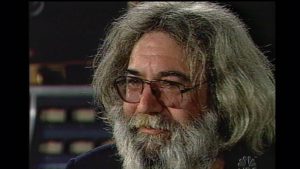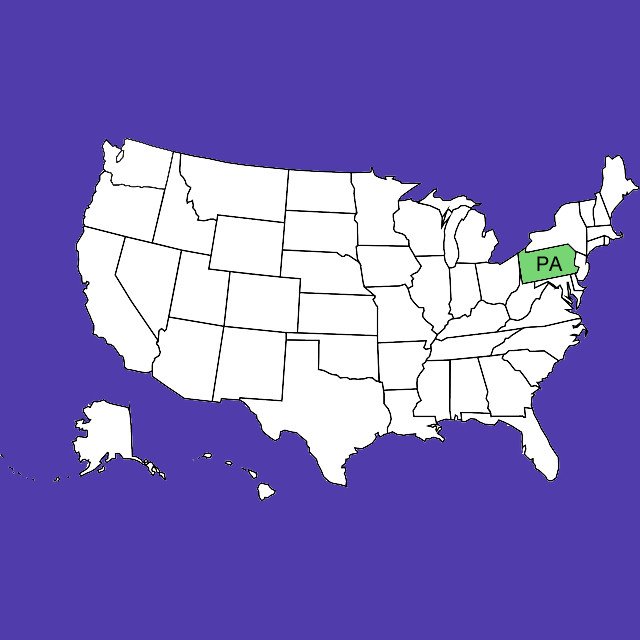Authored By: William G. Roark, Esquire

Hamburg, Rubin, Mullin, Maxwell & Lupin, P.C.
215.661.0400; Fax 215.661.0315
WRoark@HRMML.com
www.HRMML.com
Follow on Twitter@wroark81
Equal interest is now being paid to the demand side of the equation – which was the very purpose of this law’s passage – the patient.
During a recent trip out west I witnessed firsthand the importance of competent patient based regulations when, within 24 hours of landing, I had legally obtained my own patient ID card. Without naming names (because I would like to return to this State) we can use this experience to differentiate Pennsylvania’s nascent medical marijuana program.
The “patient intake form” was only one page. It wasn’t presented to me in the comforts of a doctor’s office by a professionally accredited nurse. Instead, while I was meandering the aisles of a recent trade show in this unnamed state, a polite young woman named Roxie asked me if I wanted information about patients’ rights. I said yes and “voila” I was holding a one page questionnaire asking for some basic information about where I lived, when I was born. But then about thirty different medical conditions were identified in a checklist format. I was asked to check which conditions I had. I remember thinking “Let’s see, low back pain? Check. Anxiety? Sure, we all get a little nervous….” And down the list I went. I signed where appropriate, submitted my form to Roxie and waited while her colleague entered my information into a database.
The real fun started when I was invited behind a curtained off area of their booth. There waiting for me was an iPad. I was told that “the doctor” would be video-calling in a few moments and that I should wait. Shortly thereafter I saw the smiling face of a man who looked to be a cross between Jerry Garcia and Gandalf the Grey


In other words, he was exactly what I expected a “doctor” under these circumstances to look like.
Below is an accurate accounting the consultation:
Dr. Gandalf: Mr. Roark, did you watch the instructional video?
Me: <<looking around for an instructional video>> Uh, no doctor, I didn’t.
Dr. Gandalf: How did you hurt your low back?
Me: Exercising in college
Dr. Gandalf: Will this be your first patient ID card?
Me: Yes doctor, it will be.
Dr. Gandalf: Very well. Go live your live.
That is not a summary. Those three questions and his parting wisdom to “go live your live” constituted the entire medical consultation. That was it. Minutes later I was holding a sealed and legally valid medical marijuana patient ID card. I hadn’t even been in the state for 24 hours and I was surely never going to see Dr. Gandalf or Roxie again. And what was the deal with the instructional video?
While the social and economic benefits of regulating adult use marijuana won’t be discussed here, I am an admitted advocate of expanding the regulated industry beyond medicinal uses. However, even for someone of my beliefs, this experience felt…wrong. Medical marijuana should be made available to patients who have a documented need for alternative treatment options. A meandering out-of-state lawyer doesn’t necessarily meet that definition.
Encounters like mine are exactly what Pennsylvania’s medical marijuana program are designed to avoid. Here, doctors will not only have to obtain special training concerning the therapeutic benefits of medical marijuana, but they must also certify that the patient is and will remain under the doctor’s continuing care. Moreover, Pennsylvania patients won’t obtain their patient ID cards directly from doctors. Instead, doctors registered with the Department of Health may only recommend the use of medical marijuana to their patients so long as the patient has one of the enumerated medical conditions (list provided at the end of this article). With that recommendation, the patient must then apply directly to the Pennsylvania Department of Health for a patient ID card. Additionally, Pennsylvania doctors have the ability to limit the dosage and form of medical marijuana to which a patient may have access.
But don’t worry, you will not soon be inundated with advertisements from doctors in this field. Pennsylvania’s program specifically prohibits the advertising of a practitioner’s services. Instead, to avoid a disconnect between patients and doctors, the Department of Health will maintain a registry on which all properly qualified doctors will be listed.
In a further effort to promote the medical focus of Pennsylvania’s program, a physician may not issue medical marijuana recommendations directly at a dispensary. This wrinkle in the law is to ensure that the health care practitioners who are required to work at your local dispensary don’t start working their side-hustle by writing recommendations. In Pennsylvania, if an individual wants a patient ID card for medical marijuana, then he or she must consult with their own physicians and find a doctor who will continue to monitor and treat the patients’ condition.
Lastly, while I don’t know if Dr. Gandalf owns an interest in any medical marijuana organization, let’s just say I wouldn’t be surprised if he did. In Pennsylvania, however, there will be no doubt. A physician who is registered to recommend medical marijuana to patients may not have any ownership interest in any permitted medical marijuana company. The logic here being Pennsylvania didn’t want doctors to be incentivized to recommend medical marijuana of one particular variety or form. The doctors’ recommendations should be guided exclusively by the consultation with their patients and the doctors training from the Department of Health.
Our medical marijuana program will be here before you know it. By spring 2018, dispensaries will be popping up like the tulips and crocuses around you. As they do, take comfort in the fact that the patients who visit the dispensaries have gone through a process far more detailed and scrutinizing than my encounter out west. Individuals carrying a Pennsylvania patient ID card would have already been examined by a registered physician, but also vetted by the Department of Health. In other words, they’ll have far more justification being a state identified patient than this meandering lawyer did.
Misinformation is the enemy of sound decision making. My goal is to make sure as many people are informed about this new law as possible. If you have any questions concerning the Medical Marijuana Act, its implementation, or a patients’ rights in Pennsylvania, then please contact the Medical Marijuana Practice Group at Hamburg, Rubin, Mullin, Maxwell & Lupin, P.C.
The list of conditions for which an individual can treat with medical marijuana in Pennsylvania currently are limited to the following: Amyotrophic Lateral Sclerosis; Autism; Cancer; Crohn’s Disease; Damage to the nervous tissue of the spinal cord with objective neurological indication of intractable spasticity; Epilepsy; Glaucoma; HIV/ AIDS; Huntington’s Disease; Inflammatory Bowel Disease; Intractable Seizures; Multiple Sclerosis; Neuropathies; Parkinson’s Disease; Post-traumatic Stress Disorder; Severe chronic or intractable pain of neuropathic origin or severe chronic or intractable pain in which conventional therapeutic intervention and opiate therapy is contraindicated or ineffective; Sickle Cell Anemia.




